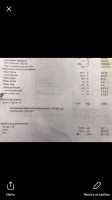Moss, I've had a frozen shoulder twice. I think that mine might have been due to my thyroid. The first time it mostly wasn't painful, but I couldn't lift my arm. It took an entire year, but it fully healed and I had complete range of motion afterwards. This second time was maybe 6 months ago and it was more painful. I was expecting it to take a year to heal, but the pain went away really fast once I reduced my breathing and increased CO2. I don't quite have the full range of motion back yet, but almost. I was expecting it to take a year to heal, so it is a relief that it healed much faster than that. My experience with the frozen shoulder is that it requires patience and time, more than physical therapy. I've done Feldenkrais and agree that that is really helpful for increasing all kinds of movement capacity. Now I sometimes do any kind of movement that my body wants to do, while maintaining awareness of the body and felt sense. Kind of like a free form Feldenkrais, instead of specific exercises.Yes I did, thanks very much artemis
And I take Progest-e (more than one drop) currently and I when I initially saw marikay's post I promptly smothered Progest-E on shoulder, waiting for a miracle, sadly not my experience.
I am currently experimenting with a few supplements and also testing IR light and when I have more conclusive results I will post.
I've tried most of the physical therapies and none have been helpful.
What has been the stand out is Feldenkrais. Awareness through movement.
@artemis, thanks for giving an honest account of how things went for you. I have diabetes on both sides of my family. My brother and his two kids have all been type 1 diabetic from a young age. My understanding is that type 1 is a whole different thing than type 2, and you have a whole lot less control around getting it. But my brother and both his kids were addicted to sugar and other junk food. But maybe they craved sugar due to having the condition? When I was younger, I was always afraid that I was going to get diabetes.
I don't feel good if I eat too much sugar. So I don't drink milk, orange juice, or consume any sugar, honey, or maple syrup. I eat fruit, but too much fruit and I don't feel good either. But Ray Peat suggestions of liver, gelatin, carrot, less PUFA, etc... seem to be helpful so far. It seems like lots of people need to modify Ray Peat's advice to fit what works for them as an individual. I've also had a tendency to have low blood sugar issues. Your experience is a helpful reminder to me to trust myself and body. Thanks.

